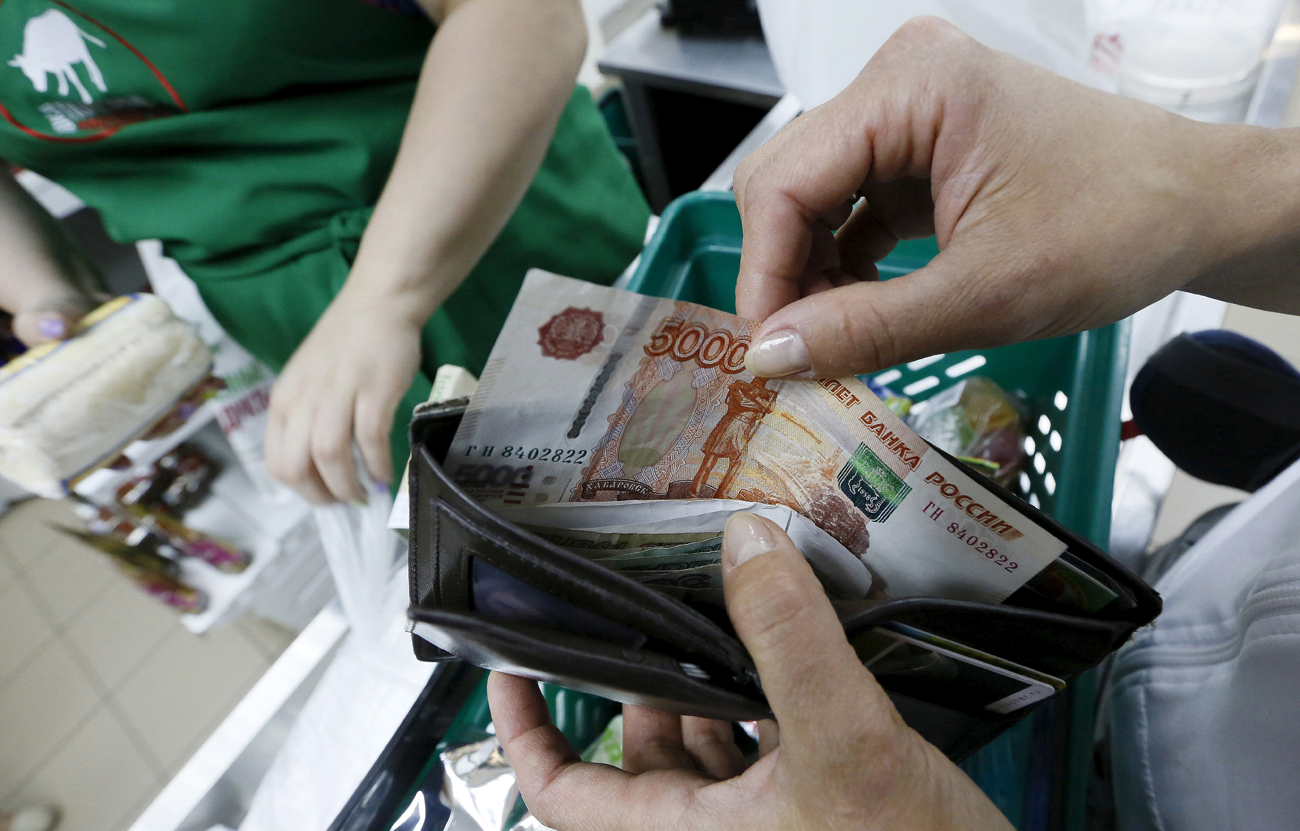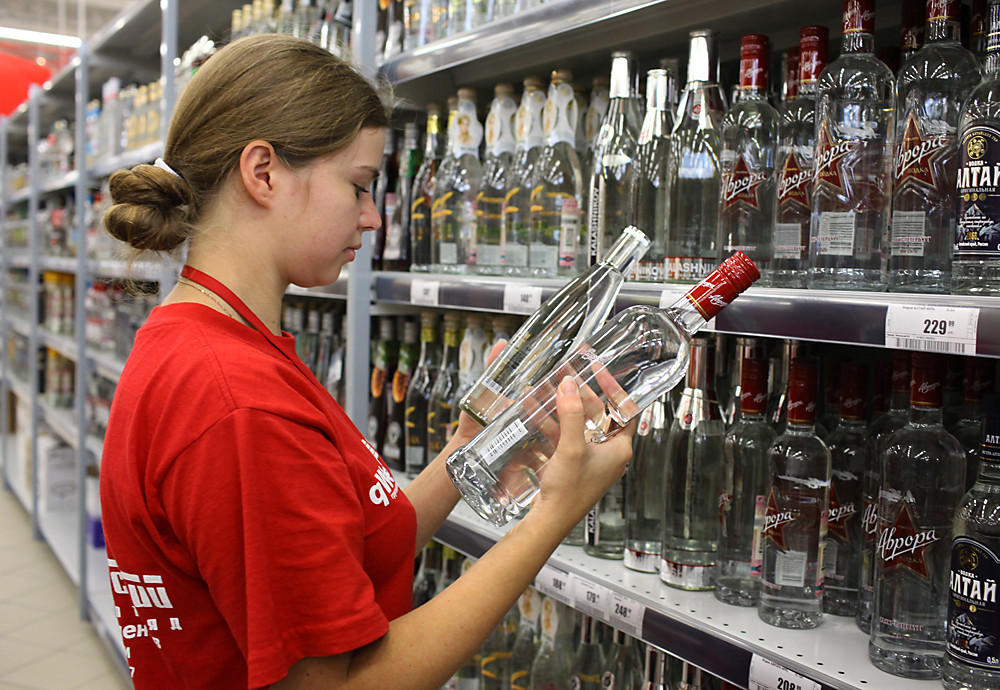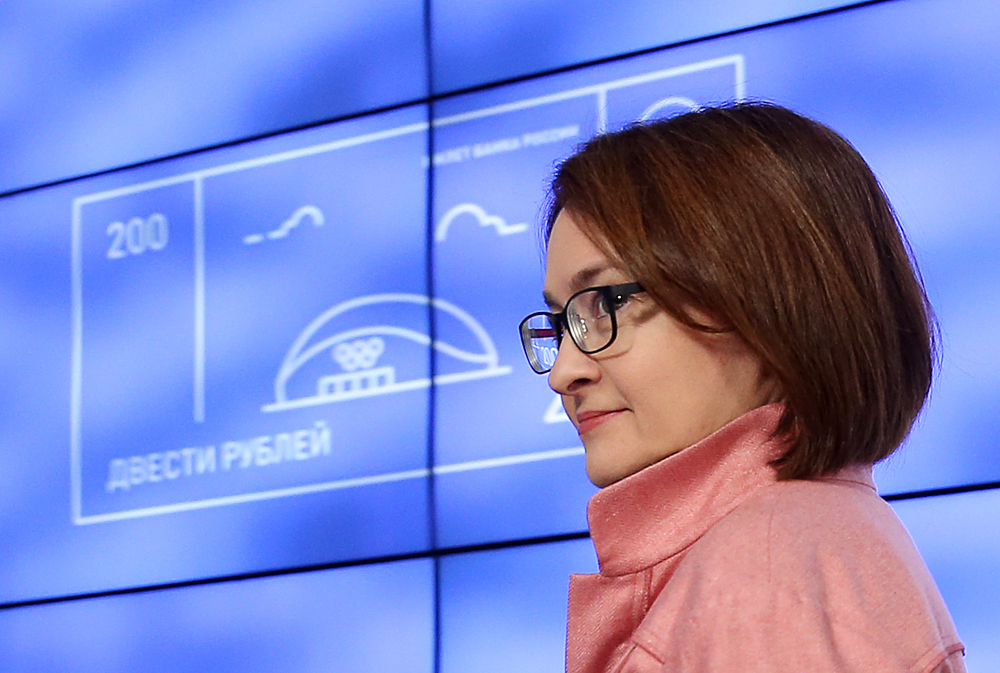Why Russia is seeing prices fall for the first time in 5 years

According to analysts, in 2016, like five years ago, the deflation can be explained by seasonal reasons.
ReutersAccording to information provided by Rosstat, the state statistics agency, the beginning of August saw the appearance of deflation in Russia as prices for consumer goods fell by 0.1 percent.
"For the Russian economy the decrease in inflation is good news. If things do not change, this will lead to inflation reaching the four percent that the Russian Central Bank has set for 2017 faster," said Timur Nigmatullin, a financial analyst at Finam Holding in Moscow (in comparison, in 2015 inflation in Russia was 12.9 percent).
This is the goal that the Russian regulator set at the end of 2014 when it reacted to the weakening ruble by allowing the currency to float, which ultimately resulted in it sinking further against the euro and dollar to 50 percent but allowed the government to preserve its currency reserves instead of using them to prop up the ruble.
Holidays and consumer caution
According to analysts, in 2016, like five years ago, the deflation can be explained by seasonal reasons. "Usually, in the summer prices on food significantly decline. Fruits and vegetables are cheaper since new crops arrive at the market," noted Andrei Kochetkov, an analyst from Russian stocks broker Otkrytie Broker.
In his words, in large cities prices for services fall due to the holiday season. Commercial networks often hold sales and various promotions in order to attract buyers in these calm months.
But there are more profound reasons for the fall in prices. According to Mikhail Poddubsky, an analyst at Moscow financial consultancy TeleTrade, a significant role is being played by declining consumer demand. This is because due to the fall in GDP it is more and more difficult for Russians to maintain their former spending volumes since the level of their real incomes has decreased.However, despite all the restrictions, the deflation is still positive news for the Russian market. "It increases trust in the national currency and should have a good effect on economic activity," explained Dmitry Bedenkov, director of the analytical department at Moscow-based investment company Russ-Invest. He noted that first and foremost the decrease in inflation raises consumers' purchasing power if their incomes are stable.
Inflation at 4 percent
The deflation recorded in the beginning of August proves that by 2017 Russia can reach an inflation level of four percent – targeted by the Central Bank – for the first time in its history, said Bedenkov, adding that such a result would be attainable thanks to the regulator’s severe credit-monetary policy.
"Interest rates in the financial market are over 10 percent, which limits people's access to credit and impedes economic growth," he said.
However, according to Timur Nigmatullin, this is still good news for the population since it will lead to the growth of real disposable incomes and the reduction of interest rates on credit, including those on mortgages.
Konstantin Korischenko, the former deputy chairman of the Russian Central Bank, says that for inflation to reach four percent it is necessary for oil prices to increase and the Western sanctions against Russia to be lifted.
"It is more realistic that by the end of 2017 inflation will fall to five or six percent," said Mikhail Poddubsky, stressing that, since the Russian economy is significantly dependent on import, the ruble exchange rate will also have a big influence. The weaker the ruble, the more difficult it will be for Russia to reach the set inflation level, he said.
All rights reserved by Rossiyskaya Gazeta.
Subscribe
to our newsletter!
Get the week's best stories straight to your inbox

